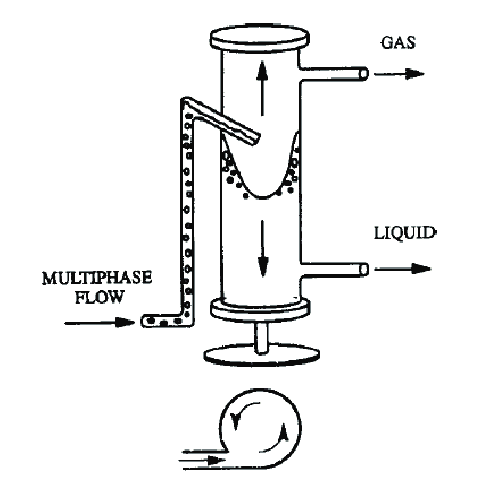Established in 1994, the mission of Tulsa University Separation Technology Projects (TUSTP) is to advance the state-of-the-art of compact multiphase cyclonic separation technology for gas/oil/water/sand flow. This includes individual compact separator components, such as the Gas-Liquid Cylindrical Cyclone (GLCC©), Liquid-Liquid Cylindrical Cyclone (LLCC©) and integrated compact separation systems. Emphasis is placed on measurement and understanding of the hydrodynamic flow behavior in compact separators and development of design tools, based on mechanistic modeling, for the industry.
TUSTP research is supported by 16 leading national and international companies in the petroleum industry. We envision long-term cooperation with the petroleum industry conducting projects to better understand, analyze and design separation systems. To date over 4,000 GLCC©s have been installed by the industry in fields all around the world, based on the technology developed by TUSTP. These include a subsea GLCC© and a compact Inline Water Separation (IWS) system.
Directors: Dr. Ovadia Shoham and Dr. Ram Mohan

About the GLCC
The Gas-Liquid Cylindrical Cyclone (GLCC) is simple, compact, light weight, inexpensive, and efficient. It requires little maintenance and is easy to install and operate. It has brought a revolutionary change into the field of Compact Separation Technology.
Potential applications include:
- Control of Gas Liquid Ratio for Multiphase flow meters and pumps
- Portable Well Test Metering
- Steam Quality Metering
- Flare Gas Scrubbing
- Primary Surface or Subsurface separation
Areas of Research
Ongoing Projects
Current projects with TUSTP, TUCoRE, NSF, and DOE.
Active Projects
Seventeen graduate students are pursuing investigations in TUSTP at this time.
Completed Projects
Fifty graduate students have completed forty-eight studies in the past 17 years.